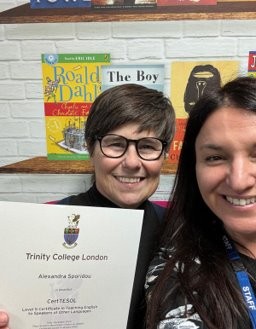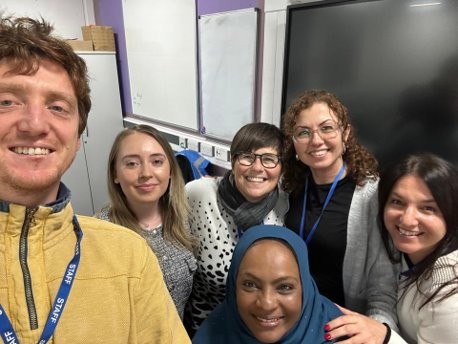Empowering second-stage career changers in ELT: Building confidence, community and pathways into teaching

Empowering second-stage career changers in ELT: Building confidence, community and pathways into teaching
At this year’s Future of English Language Teaching (FoELT) conference, teacher educator Suzannah shared insights from her experience designing and delivering ESOL programmes and teacher training courses across Manchester.
Suzannah has worked on numerous projects in partnership with local councils and is passionate about creating accessible pathways into English language teaching. She designed the TESOL Foundation Course and delivers the Level 5 Trinity CertTESOL, helping career changers and aspiring teachers take their first steps into the profession.
Her session focused on a growing group within English language teaching: second-stage career changers. These are people entering ELT from other fields, returning to work after a break, or seeking a new professional purpose later in life. Suzannah explored how providers can support these trainees at every stage of their journey — from the decision to enrol to their first teaching role — by building confidence, community and clear career pathways.
Understanding second-stage career changers
Not all trainee teachers follow the traditional route straight from university. Many bring a wealth of professional and life experience from other fields but face different challenges when starting out in ELT.
Suzannah explained that while these learners often arrive with strong transferable skills, they may also experience confidence gaps, especially with technology, language systems or academic study skills. Recognising and responding to these needs helps create a supportive and inclusive training experience.
Preparing trainees before they start
One of Suzannah’s main recommendations was to offer support before the course begins.
Short, structured taster sessions, such as those inspired by Teach with Trinity, allow prospective trainees to explore the realities of teaching, identify transferable skills and see how their experiences can enrich the classroom.
Pre-course modules that introduce grammar, phonology and core methodology can also help build knowledge and reduce anxiety, ensuring that trainees start their qualification with confidence.
Building confidence with targeted support
For many career changers, technology is a key hurdle. Tasks such as creating slides, managing audio files or working with online materials can feel overwhelming at first.
Suzannah recommended offering hands-on tutorials early in the course to develop these digital skills. By addressing these challenges directly, trainees can focus on developing their teaching and feel more confident throughout their training.
Creating community and shared learning
Support and connection are central to success. Suzannah highlighted the value of community in helping trainees feel motivated and supported.
- Small-group collaboration encourages teamwork and peer support.
- Group messaging channels allow trainees to ask questions freely and share resources.
These structures help normalise questions, reduce isolation and promote a culture of openness and shared learning.
Modelling reflective practice
Suzannah stressed the importance of reflection as an essential part of teacher development. Trainers can model this by sharing their own reflections on what worked and what could be improved, showing that growth comes from curiosity and self-evaluation.
By encouraging trainees to ask why something worked, rather than focusing only on what went wrong, reflection becomes an active tool for professional growth and adaptability.
Supporting the transition into work
Completing a qualification is only the beginning. Suzannah emphasised the importance of post-course support, including references, interview preparation, and guidance on local opportunities.
Continued communication after certification helps career changers take their first steps into teaching with confidence and direction, ensuring that their training leads to meaningful employment and ongoing professional development.
Real stories, real impact
Suzannah illustrated her points with stories of trainees who benefited from this approach:
- Wendy overcame a lack of confidence with technology through early, supportive tutorials.
- Carly transitioned from HR into ELT, finding a flexible career that suited her family life.
- Carmen used her CertTESOL qualification as a pathway into a secondary English PGCE.
- Muminatu, a university student, completed her CertTESOL alongside her degree, gaining work experience and graduating with a first-class degree and a Level 5 teaching qualification.
These examples show how targeted support and community can empower people to change careers successfully.
Key takeaways
|
Theme |
Key idea |
|
Early preparation |
Taster sessions and pre-course modules help trainees build confidence before training begins. |
|
Confidence building |
Targeted digital skills support enables trainees to focus on their teaching. |
|
Community support |
Peer groups and open communication channels create a strong sense of belonging. |
|
Reflective practice |
Trainers should model reflection to promote continuous growth. |
|
Post-course guidance |
Continued support after certification helps trainees transition successfully into work. |
Final thought
Suzannah’s message was clear: career changers bring valuable skills and experience to English language teaching. With the right support, they can thrive in their training and beyond.


